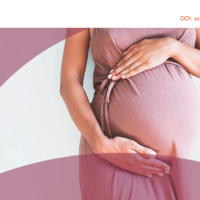Meta-analysis
-

Clinical Review: Sleep disturbance as transdiagnostic mediator between adverse childhood experiences and psychopathology in children and adolescents: A structural equation modeling meta-analysis
Open Access paper from JCPP Advances – ‘The present study used a novel two-stage meta-analytic structural equation model to investigate whether ACEs predict psychopathology through sleep disturbance’. Jianlin Liu et al.
Read more -

Categorical versus dimensional structure of autism spectrum disorder: A multi-method investigation
Open Access paper from JCPP Advances – ‘The primary objective of this study was to use a multi-method approach to examine the broad latent categorical versus dimensional structure of autism spectrum disorder (ASD)’. Thomas W. Frazier (pic) and Lacey Chetcuti et al.
Read more -

Research Review: A systematic review and meta-analysis of infant and toddler temperament as predictors of childhood attention-deficit/hyperactivity disorder
Paper from the JCPP – “This meta-analysis examined the associations between these early temperamental factors and later symptoms and diagnosis of ADHD and mapped early temperament constructs onto the three ADHD symptom dimensions.” Heather M. Joseph et al.
Read more -

The network structure of posttraumatic stress symptoms in war-affected children and adolescents
Open Access paper from JCPP Advances – “It is unclear whether findings from previous network analyses of posttraumatic stress disorder (PTSD) symptoms among children and adolescents are generalizable to youth living in war-torn settings and whether there are differences in the structure and connectivity of symptoms between children and adolescents”. Florian Scharpf (pic) et al.
Read more -

Review: Meta-analysis on mindfulness-based interventions for adolescents’ stress, depression, and anxiety in school settings: a cautionary tale
Open Access paper from the CAMH journal – Mindfulness-based interventions (MBIs) have been applied in school settings for adolescents with symptoms of stress, depression, and anxiety; however, general conclusions of the efficacy of such interventions remain unclear. This meta-analysis reviewed randomized-controlled MBI trials for stress, depression, and anxiety in school settings. Nilija Fulambarkar (pic) et al.
Read more -

Technology-based CBT for youth anxiety: moderate short-term benefits but uncertainty remains
Blog by Douglas Badenoch of The Mental Elf Service on Dr. Matti Cervin et al paper ‘Technology-delivered cognitive-behavioral therapy for pediatric anxiety disorders: a meta-analysis of remission, posttreatment anxiety, and functioning’.
Read more -

Which perinatal exposures confer a risk of offspring depression?
In December 2020, the Journal of Child Psychology and Psychiatry published a Research Review authored by Xiangfei Meng and colleagues Yingying Su and Carl D’Arcy on the developmental origins of depression.
Read more -

Do autistic girls have better communication and interaction skills than autistic boys?
There is ongoing debate as to whether autism spectrum disorder (ASD) differentially affects males and females. Several meta-analyses have found little difference between males and females with ASD in terms of social communication and interaction skills. However, such analyses have often relied on diagnostic instruments such as the Autism Diagnostic Observation Schedule, Second Edition 2 that may not be sensitive to how autism presents in females. What’s more, many have been based on global scores, that reflect overall social communication and interaction skills, which could miss subtler differences in specific domains.
Read more -

JCPP Editorial: Volume 62, Issue 09, September 2021
Editorial: Money cannot buy happiness – but can it prevent depression? A commentary on Su et al. by Madeeha Nasir, Michael H. Bloch
Read more -

Can we prevent psychosis in high-risk adolescents?
Over the past two decades we’ve seen growing efforts to prevent psychosis developing in people with subtle signs and symptoms of the disorder, termed ‘Clinical High-Risk State for Psychosis’ (CHR-P).
Read more